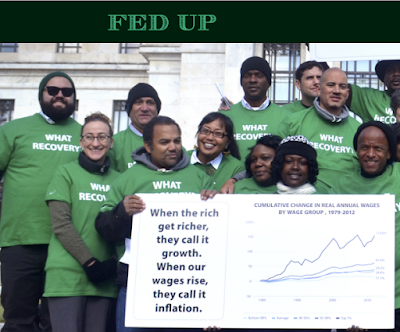 |
| SHOWTIME image / Wikipedia |
This series is based upon a high stakes dual between a billionaire hedge fund manager and a shrewd U.S. District Attorney. Within a week, I devoured the entire twelve episodes from season one. Happily, the show is coming back for a second season.
The two principal characters: U.S. Attorney, Chuck Rhoades (Paul Giamatti) and billionaire investor, Bobby Axelrod aka "Axe" (Damien Lewis). An outstanding supporting cast includes...
 |
| Billions writers per Wikipedia |
Due to the care and talent of the writers (see list at right >>) and a brilliant cast that brings their work to life, these characters are truly multi-dimensional. It's hard to completely love or loathe any of them, but you'll want to watch all of them.
While a certain amount of salaciousness is expected, some scenes in Billions seem implausible. Examples include Chuck Rhoades' sadomasochistic sex scenes and Wendy Rhoades' willingness to slip into a bath naked with Axe to have a completely platonic business conversation (sure). These are minor quibbles. Watch the trailer by clicking here >>> or if you are pressed for time, check out this short YouTube video....







